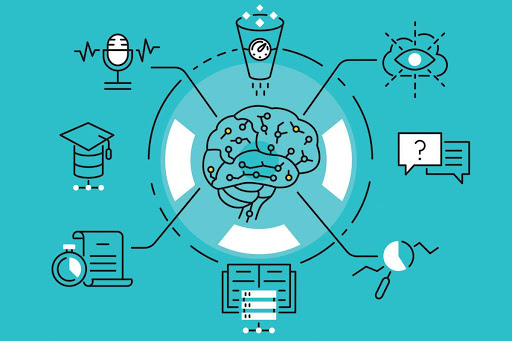2 min read
4 Ways: How Artificial Intelligence is Transforming the Insurance Industry?
Anurag : Apr 19, 2017 12:00:00 AM


The insurance industry is regarded as one of the oldest industries to use modeling and statistics. Today, customer centric models and changing demographics, combined with technologies such as cloud, AI, and big data, are creating a data deluge. With intelligent tools and systems, this data could prove to be a gold mine for informed business decisions. The insurance industry has traditionally been using data to improve efficiencies and to assist with business processes - like for claims processing and underwriting. In a report last year about AI, Price Waterhouse Cooper said in the insurance sector, the impact will be more intense. It will underwrite, assess and identify emerging risks and identify new revenue sources.
Before the advent of AI, things were more manual and labour-intensive in this industry and claim processes took months to finish. Product recommendations used to be from advisor experience, too many loopholes in the insurance fraud detection system and the risk groups were classified using only static data like medical history and age.
But all this is changing as AI makes its way into the insurance sector and transforming things for good. We now have product recommendations from deep analytics of customer data, claims are processed faster using automated image classification, risk group classified using a broad spectrum of data, like clickstreams, social media, and web analytics, increased revenue, frauds in insurance more accurately detected and customer churns predicted and intercepted in real time. Artificial Intelligence in insurance sector means improved efficiencies, automated existing customer-facing, claims and underwriting processes and with time, its impact would be more profound.
1. Integrated customer data from various sources

With the help of AI, the customer data can be accessed from myriad sources such as weblogs, clickstreams, CRM systems and social media. Later this data can be combined into one single format for analytics. More accurately and automatically the risk groups can be classified, insurance companies can recommend their products, cross-sell and up-sell opportunities can be recognized and much more.
2. Automated & Targeted product recommendation
Insurance companies can leverage AI to give away the most relevant products for their customers. Given inputs such as gender, age, state, postal code, household size, the number of dependents and annual income, an AI platform can readily recommend term coverage and burial coverage in addition to general life insurance coverage. This could benefit the agents selling insurance, as they can more intelligently map product variables, such as face and term value, to the specific needs of a customer.
3. Crumble complexity with AI tools
Life investing, insurance, and retirement planning are few of those tricky areas where there are numerous interrelated and dynamic data variables. A single analytics and marketing platform built on top of AI allows the insurance firms to understand their key customer objectives and to crumble complexity through improved customer intelligence.
4. Improved customer intelligence

AI has allowed insurance industries to gain unprecedented customer intelligence. With big data and analytics, insurance companies can extract the intelligence that has the capability to enable improved customer service, better campaigns to prospects and customers, more effective up- and cross-selling, and increased revenues.
Machines will soon be able to devise solutions to large-scale problems in countless fields including medicine, finance, science and education thus augmenting human potential and enabling us to go further, farther and faster. NewGenApps recognized this early on in the race and we have already developed solutions for various industries using Cloud, Big Data, AI and analytics. If you want to know how AI can help your business or how to make sense of the vast amount of data at your disposal, please get in touch and lets get started.

5 Applications: Artificial Intelligence & Machine Learning in Banking
Artificial intelligence (AI) has brought upon one of the biggest revolutions in the banking industry. Where traditional software was hard-coded with...

Role of Artificial Intelligence and Machine Learning in Financial Services
With the advancement in technology, we have witnessed a tremendous change in different sectors. This has come up as a huge evolving mode that is...



